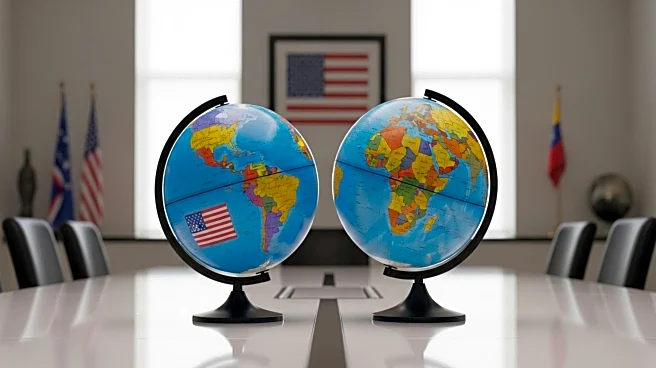What's Happening?
The United Nations Security Council is scheduled to convene on Friday to discuss escalating tensions between the United States and Venezuela. This meeting has been requested by Venezuela, Russia, and China, highlighting the international concern over the strained relations. The diplomatic friction stems from various geopolitical disagreements, with Venezuela seeking support from allies to address perceived threats from the United States. The involvement of Russia and China in calling for this meeting underscores the global dimensions of the issue, as these nations often oppose U.S. policies in international forums.
Why It's Important?
The meeting of the UN Security Council is significant as it reflects the ongoing geopolitical dynamics involving major world powers. The tensions between the United States and Venezuela have implications for international diplomacy and regional stability in South America. The involvement of Russia and China suggests a broader strategic interest in countering U.S. influence in the region. This development could affect U.S. foreign policy and its relations with other countries, potentially leading to shifts in alliances and diplomatic strategies. The outcome of the meeting may influence future interactions between these nations and impact global political alignments.
What's Next?
The UN Security Council's discussions may lead to resolutions or statements that could either ease or exacerbate tensions. Depending on the positions taken by member states, there could be calls for diplomatic negotiations or sanctions. The United States may respond with its own diplomatic initiatives or military posturing, depending on the perceived threats. Venezuela, backed by Russia and China, might seek further international support to bolster its position. The meeting's outcome could set the stage for future diplomatic engagements or confrontations, influencing international relations and regional politics.










